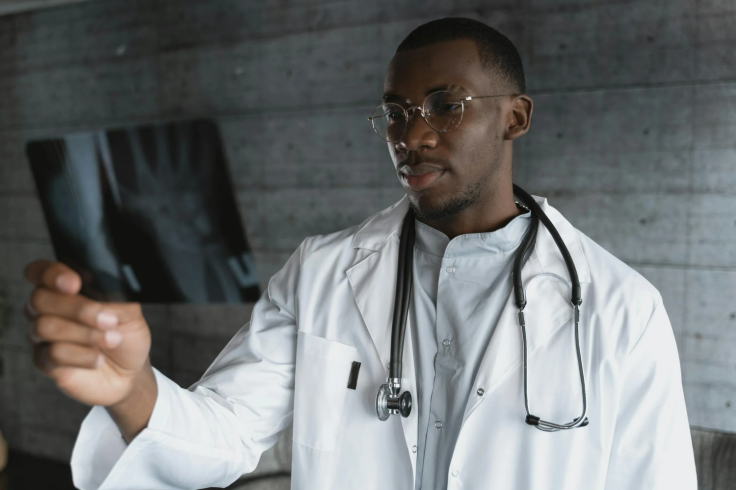The path Jerrian Reedy took to medicine was forged in the crucible of personal tragedy. Still just nine years old, Reedy had one of the more memorable summers of his life. His father was admitted to a Hattiesburg, Mississippi, hospital with three gunshot wounds. Though children are not allowed in the intensive care unit in their hometown hospital, Reedy was given an exception.
The vision of his father lying on the bed at the hospital remained in his mind long after his father's death, only a week later. If that wasn't enough of a blow for the boy, his family further suffered from the loss of both an aunt and a grandmother in the course of nine months. These experiences instilled in Reedy the need to prevent other children from having to go through similar heartbreak. This drive propelled him into the field of medicine, heeding his call to become a beacon of hope in the field where representation and understanding can be very instrumental in the outcome of treatment.

The Road to Representation
Reedy's path to becoming a medical student at the University of Mississippi School of Medicine vastly becomes relevant in the much broader context of racial inequities within medicine. In Mississippi, a state where nearly 40% of its population bears the racial identity of Black, less than 10% of its doctors do. This wide discrepancy underscores long-standing barriers Black individuals face during access to medical education and, consequently, to care within their communities.
Even though he's part of just a small minority-- 82 of the 660 medical students at his school are Black-- Reedy is a major player. Studies have shown that patients do better when they're cared for by doctors of their own race, partly because they communicate better and relate to the same culture. Medical schools are working hard across the country to develop programs to attract Black, Hispanic, and Native American students to fill such gaps. These efforts are now threatened by recent changes to the law.
READ MORE : Albert Einstein College Of Medicine Adopts Tuition-Free Policy After Historic $1 Billion Donation
Anti-DEI Legislation Challenges
This push toward medical school diversity has continued amid rising pushback, especially after the Supreme Court's 2023 decision that barred affirmative action policies in higher education. In response, numerous states, such as Mississippi, have proposed or created laws designed to constrain this type of DEI program. Proponents argue that it should be purely based on qualification and not on race or socioeconomic status.
However, critics argue that these measures will only help in increasing health disparities. They also said that DEI work is not about giving international students room to have lower standards than their domestic classmates; rather, it's about leveling the playing field so any qualified person, regardless of background, has a chance to pursue a medical career. Much research points out that having a diverse medical workforce will improve health outcomes for the underserved population of communities.
The debate surrounding DEI programs in medical education is very poignant in Mississippi. Its health outcomes are among the worst in the nation, and its legacy of systemic racism persists within its healthcare workforce to this very day. The University of Mississippi School of Medicine has a contentious legacy-- only integrating its first Black student in 1972. Planning the annual African American Visit Day and test preparation programs for underrepresented applicants are looking to move the school forward from this tarnished legacy.
Supporting the Next Generation
Events like the African American Visit Day at the University of Mississippi School of Medicine aim to inspire, equip, and mentor the next generation of Black doctors. Activities provide a glimpse into the vast career opportunities available through medicine and offer specific tools such as test preparation and mentorship. This will be of value to participants who would resonate with it.
For Reedy, being involved in programs such as the PROMISE program was essential in his journey. Students from families whose backgrounds have hitherto been considered disadvantaged, and who meet certain specified academic criteria, have acceptance guaranteed under these programs. These programs support students who otherwise might be bypassed by systemic biases baked into educational and healthcare systems.
Reedy's story is one of the principal narratives of resilience and representation in medicine. His drive to orthopedic surgery was to serve his community, to secure a future where no child goes through that kind of loss. It is further seasoned with the hope that continuing higher education will inspire dedication and support to make the medical profession increasingly fair. This will lead to favorable health outcomes for all.
© 2026 University Herald, All rights reserved. Do not reproduce without permission.








